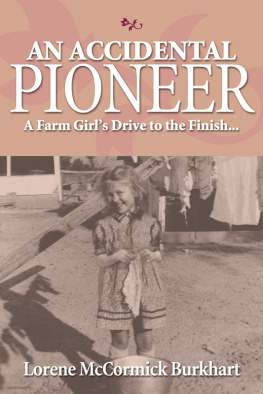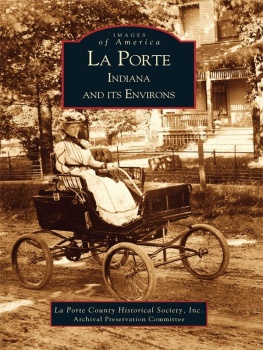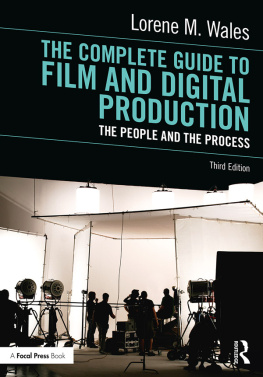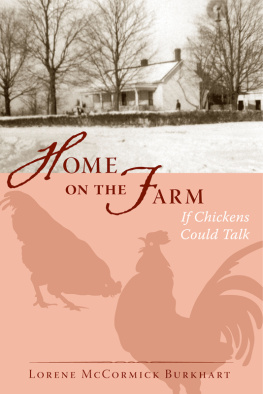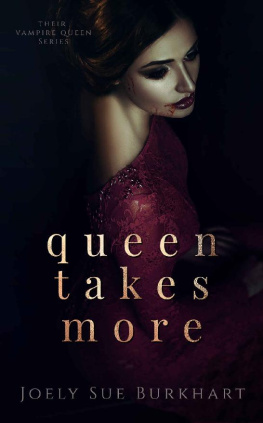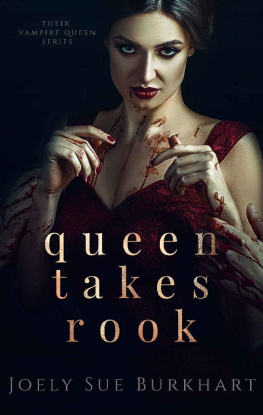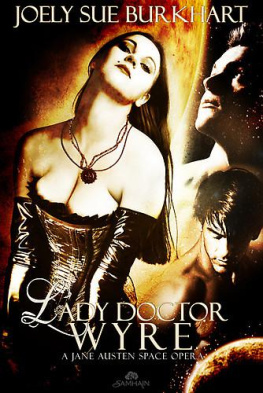An
A CCIDENTAL P IONEER
A Farm Girls Drive to the Finish
Copyright 2013 eBook by Lorene Burkhart
Licensed to Hawthorne Publishing
All rights reserved
For more information about the author, see the website
Hawthorne Publishing
15601 Oak Road
Carmel, Indiana 46033
317-867-5183
www.hawthornepub.com
DEDICATION
To my parents, Emma and Clarence McCormick, the original Accidental Pioneers.
ACKNOWLEDGMENTS
M emories are selective. This story is of course told from my own viewpoint, but its not exclusively my story, so I enlisted the aid of several relatives in order to glean the most accurate information.
I would like to thank my brothers Jim, Don, and Ed McCormick, with whom I shared many a chuckle as one of us would exclaim, No, it didnt happen that way! Equally generous with their recollections were my cousins Alice Ann Osborne Ready, Imo Jeanne Osborne Williams, Gladys Neal Rumer, Evelyn Bobe Cofer, and John Henry Bobe.
CONTENTS
I was born and grew up in southern Indiana, on a farm situated at the highest point of an area bordered by two rivers, the Wabash on the west and the White on the east.
We never used these rivers for recreation, and rarely even for fishing; they were merely boundaries. For us, the White River held no fascination, other than whether or not it would rise above its banks and flood whatever crops we had planted in the bottom land. Illinois was just across the Vincennes bridge that spanned the Wabash, but I seldom traveled there. We had just about everything we needed right where we were.
On the surface, growing up on that farm between the two rivers was serene and simple. As is often the case, however, things may not be as they appear, and just as a river has unseen currents running beneath its surface, below my familys surface were some rather complicated dynamics. Only through the perspectives of adulthood and my own experiences have I begun to perceive and understand those dynamics, and how they impacted everything I have done. I learned that with solid values, creativity, hard work, and strong faith in God, one can break beyond any limits. I learned that life is whatever you choose to make of it.
My careers have ranged from teaching home economics to working in public relations and marketing, to being one of the first female executives of a major American corporation. I also worked extensively in radio and television, beating Martha Stewart to the broadcast how-to genre in home and economic issues. Ultimately I reached a point where I was blessed to be able to work as a volunteer in my community with various organizations designed to enrich and improve the lives of others. The work may be for no pay, but I have been compensated by the tremendous satisfaction found in giving back.
My experiences have been unbelievable, nothing like I ever visualized as a girl growing up on a farm, a girl who wrote in high school that her career goal was to be a home economics extension agent!
All of my achievements were enriching, but what has always been most important to me was my family, the one I was born into and the one I eventually had of my own.
Along the way, during my seventy-plus years, numerous men and women boyfriends, girlfriends, teachers, bosses, colleagues and coworkers have had a tremendous effect on me.
And to think it all began on a farm. This is a story of a farm girls life, drive, and perseverance. This is my story.
I wasnt named Strutsie when I was born. It was a nickname I picked up when I was about three years old because everyone in my family thought it fit me perfectly. It was derived from a character in the childrens card game, Old Maid, a little girl named Mandy Struts. The picture on the card showed her with blond hair and blue eyes, playing dress-up in grown-up high heels and a saucy hat perched atop her curls. As my mother explained it, they thought Mandy Struts looked a lot like me. A favorite snapshot of me at about age three backs that up: There I am, all decked out in my mothers hat and shoes, with the added panache of a girdle pulled up over my frock. Thus I became Struts or Strutsie, and the nickname endures yet today by those who knew me then.
Its a widely held belief that were born with a lot of our personality and that we only refine it as we age. I guess thats why the Struts name has stuck. (My fondness for playing dress-up has remained a lifelong passion, except now its called shopping and showing.)
How do we evolve into who we are? What are the forces that shape us into the kind of persons we become?
We hear endless debates about nature versus nurture and what makes people tick, but the answers seem always elusive. I believe that much of our character comes from where we grow up, the people, the history, and the culture of our childhood. Knox County, the place between the two rivers where I was raised, is one of the richest historical and cultural areas in the Midwest, the birthplace of many of the influences that shaped the region. Im proud to be a product of that environment.
We cant thank our forebears for providing our rich heritage, but I hope to express my gratitude in this book by presenting a look at my history. My childhood, my family, and how we lived provided my foundation, and I used the values and strengths of that foundation to create what I am today. Ive discovered also that as we peek into the crackled mirror of life, we see not only reflections of our past, but also glimpses of our future.
In some respects my story is much like that of many women who grew up on farms in the days before and during World War II. Women then expected traditional worlds of home and children and the role of being wife and helpmate for the familys endeavors. My family was nontraditional, however, and my life has continued to be nontraditional in ways that have amazed me. But in spite of the forces that drive me along unexpected routes, at heart I am and will always be a farm girl.
Genes and Geography
The Creation of Character
W hen my father, Clarence James McCormick, died on January 30, 1983, news of his passing made the front page of the Knox County Daily News , along with a story of his life that occupied one-third of page seven. His obituary also appeared in The Indianapolis Star and The Indianapolis News and several other state and regional publications. His death was picked up by the UPI wire service and noted nationwide in such newspapers as The New York Times , The Courier Journal (Louisville), and The Tribune (San Diego).
Dad was born into a farm family that lived near the town of Decker in southwestern Knox County, about fifteen miles south of Vincennes. So what was it about a country boy from southern Indiana that made his death national news?
Its understandable that his obituary would have been picked up by state and regional papers. My dad had been active in the Knox County community, working as a young adult in local farm programs, then moving up to state organizations such as the Agriculture Adjustment Administration (AAA) and the Purdue University extension program. In time, however, he moved to a position of national importance as chief of the Corn and Soybean Section of the Commodity Credit Corporation, a branch of the Department of Agriculture in Washington, D.C. Most significant, however, was that in 1950 he was appointed Under Secretary of Agriculture by President Harry S. Truman.
How does a man from a tiny rural Indiana community come to be such an important national figure, a part of the presidents staff? Anyone who knew my dad would never wonder at that. Reaching for high goals was part of his nature. It was something bred into him from childhood, something that was an intrinsic part of his family makeup. It was also something that he passed along to his children, for which I am profoundly grateful.

